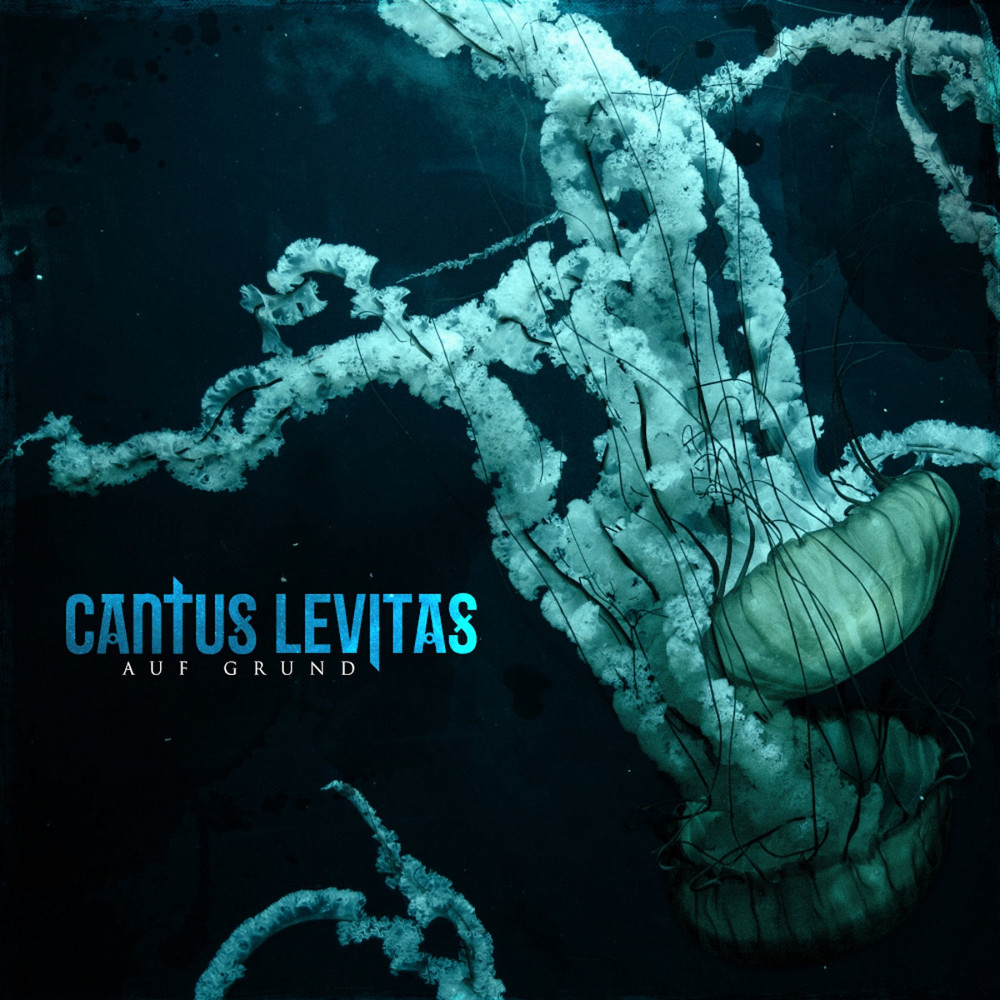 |
Country: Germany
Style: Medieval Metal
Rating: 7/10
Release Date: 27 Jul 2019
Sites: Bandcamp | Facebook | Instagram | Official Website | Metal Archives | YouTube
Before I virtually leave Germany for parts unknown, I knew I had to review a medieval metal album because it's become a quintessential German genre and I love it. Fortunately Cantus Levitas released their new one last weekend, no less than seven years after their first, Schnapsidee, so that's what's up!
What's medieval metal, you might ask? Well, it's pretty much what you think it might be, folk metal that's either exclusively or predominantly performed on instruments from that era. Pioneers Corvus Corax are the former, playing only period instruments, not just bagpipes, shawms and hurdy-gurdys but some that I'd never heard of, such as buccina, riq and cornetto curvo. This band, like the Corvus Corax side project, Tanzwut, include modern instruments too, such as guitars and a full drumkit.
I'm not sure what the Cantus Levitas line up looks like nowadays because I'm finding conflicting information, but there are at least a couple on bagpipes and a whole bunch on percussion instruments. The pipers also play shawms and others sit behind drumkits or play assorted percussion. Tobi, the guitarist, also plays the davul, which I had to look up; it's a large drum that's worn and played with mallets, used most often in middle eastern music. Many band members play more than one instrument, whether the additional one is a flute or an accordion or a cittern, a medieval mandolin.
And, given all that, what surprises me is that they sound a lot more like a regular metal band than a medieval metal band, at least whenever the guitar, bass and drums are in play. The bagpipes add a powerful drone over the top, and often a melody, almost like a keyboardist might provide in a different setup. Other instruments tend to wait for gaps to be heard.
Another surprise is that, for a band from the landlocked towns of Karlsruhe and Heilbronn, there's a lot of material here about water. Out of thirteen tracks, at least four are nautical, if Google Translate is being honest with me: Sieben Meere is Seven Seas, Flut is Flood, Altas Undas is High Waves (in Galician, for some reason) and Ferne Ufer is Distant Shore. Flut, the first song that really sold me on the album, is bookended by swirling waves. After all, the album title, Auf Grund, translates to On Reason, but the cover art features jellyfish. Yeah, if there's a metaphor here, I'm not seeing it.
Flut is the fourth track and it's sort of medieval Rammstein. The prior three songs weren't as overtly familiar and the following one, Aus dem Leben, my other favourite here, is a heavier song led by a powerful guitar riff that may have an NDH flavour but a more traditional heavy metal one too, with a few drum fills that hint at power metal. Of course, the bagpipes make for a very different sound overall, as they tend to do for any metal album.
The track that I'd most like an explanation for is Al ardu alqahila, partly because that's clearly not German; partly because it's an instrumental intro to Karges Land that carries a very middle eastern feel to it; and partly for the reason that I can't translate it, though "alqahila" is apparently Hausa for "penis". Why a German medieval metal band is using a Muslim Nigerian language to talk dirty, I have no idea, especially on an instrumental, but I really dug the music.
With the exception of that trio of very different tracks, which perhaps not coincidentally appear together on the album, I found that Auf Grund faded a little too much into the background. It's certainly long, at almost an hour, and it took a couple of listens to keep my attention. Fortunately, it gets better each time through, especially as that fresh focus enables different sounds start to leap out from different tracks.
After a few times through, I enjoyed the Sabaton-esque vocal line in Karges Land, the intricacy of In die Flammen and the kick up your heels dance tune that is Ferne Ufer. I dug the acoustic flavour during the first half of Windkries too, a folk song led by an accordion. It's a real singalong song, or at least it would be if I knew enough German to understand it. The title means Wind Circle, I believe, but what that is I have no idea.
In short, Auf Grund sounds good immediately (hello bagpipes, my old friends) but it's a little on the long side and it's easy to lose focus, especially on a first time through. Persevere; it's worth it.


Auf Grund has a double meaning in German - both "on reason", as you said, but also "on ground", and more specifically the bottom of the sea or a lake. And there - hey presto! - is the nautic part of it.
ReplyDelete